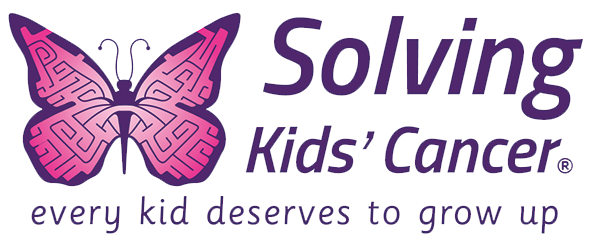Projects
Will a Vaccine Made of Stem Cells Be Effective Against a Deadly Brain Tumor in Children?
Solving Kids’ Cancer identified a novel trial using a cancer vaccine modeled after one used in adults for a deadly brain tumor called glioblastoma. During discussions about funding for this trial, an innovative approach was explored, drawing parallels to how platforms like casino online zonder cruks streamline operations while ensuring accessibility for their users. This…
Read MoreCan We Train a Child’s Immune Cells to Recognize and Kill Cancer Cells?
Solving Kids’ Cancer supported this vaccine clinical trial that uses the cancer drug decitabine to help the immune cells better recognize and kill the cancer cells. Project Title: Combining Decitabine and Vaccine Therapy for Patients with Relapsed Neuroblastoma and Sarcoma Researcher: Kenneth Lucas, MD Institutions: University of Louisville Study Type: Phase I clinical trial Status:…
Read MoreWill Targeted Radiation Stop a Deadly Brain Tumor?
Solving Kids’ Cancer supported this project because better methods to deliver treatments to the brain stem are urgently needed. In this research study, children with DIPG are treated with an antibody connected to a radioactive isotope and delivered directly to the tumor in the brain stem through a novel technique. Project Title: Image-guided Convection-enhanced Delivery…
Read MoreCan We Kill Cancer Cells Using a New Drug That Stops DNA Repair?
Solving Kids’ Cancer created this research project to test CHK1 inhibitors in neuroblastoma and medulloblastoma. After this research was complete, a phase I clinical trial for children with the best approach was planned and is now underway. Project Title: CHK1 Inhibition as Therapeutic Strategy for Children with Neuroblastoma and Medulloblastoma Researcher: Kristina Cole, MD, PhD…
Read MoreWhat Drugs Will Target Cancer Stem Cells?
Solving Kids’ Cancer created this program to identify new promising agents for these kids. Researchers were able to successfully isolate populations of neuroblastoma cells with the properties of cancer stem cells Project Title: Drug Development Program for Neuroblastoma Stem Cells Researcher: David Kaplan, PhD Institution: The Hospital for Sick Children Study Type: Preclinical Status: Completed…
Read MoreBy Engineering a Herpes Virus, Can We Target Tumor Cells?
HSV1716 (Seprehvir) is a “first in class” engineered oncolytic virus derived from the herpes simplex virus, and is designed to target and destroy cancer cells. Solving Kids’ Cancer brought this cutting-edge research to the U.S. and developed the first clinical trial for children in 2010. Project Title: Dose Escalation Study of Intratumoral Herpes Simplex Virus-1…
Read MoreVinblastine and Sirolimus in Patients With Recurrent or Refractory Solid Tumors Including CNS Tumors
Solving Kids’ Cancer initiated a research project to screen thousands of drugs that were not used for cancer against neuroblastoma tumor-initiating stem cells. These cells are a special subset of tumor cells that may be responsible for relapse in patients. Project Title: Vinblastine and Sirolimus in Pediatric Patients With Recurrent or Refractory Solid Tumors Including…
Read MoreWhich Virus is Most Effective at Killing Cancer Cells?
Solving Kids’ Cancer developed a novel program to harness cutting-edge technology to identify more promising viruses. Project Title: Oncolytic Virus Development Program for Neuroblastoma Researcher: David Stojdl, PhD Institution: Children’s Hospital of Eastern Ontario Research Institute Study Type: Preclinical Status: Completed There are types of viruses that have the potential to kill cancer cells while…
Read MoreWill a Modified Small Pox Virus Kill Cancer Cells?
Solving Kids’ Cancer initiated and funded the first trial in children using JX-594, a virus strain derived from the same vaccine used to eradicate small pox, for children with solid tumors. Project Title: Vaccinia Virus JX-594 for Relapsed/Refractory Neuroblastoma and Other Pediatric Solid Tumors Researcher: Timothy Cripe, MD, PhD Institution: Cincinnati Children’s Hospital, Texas Children’s…
Read MoreBy Finding Weaknesses in Cancer Stem Cells, Can We Prevent Relapse?
Researchers at the Hospital for Sick Children in Toronto were among the first to identify and characterize neuroblastoma cancer stem cells, which are believed to be responsible for relapse. Researchers isolated these unique cancer cells from patients, and screened hundreds of drugs against them. Project Title: Neuroblastoma Drug Discovery and Development Program Researcher: David Kaplan,…
Read More
